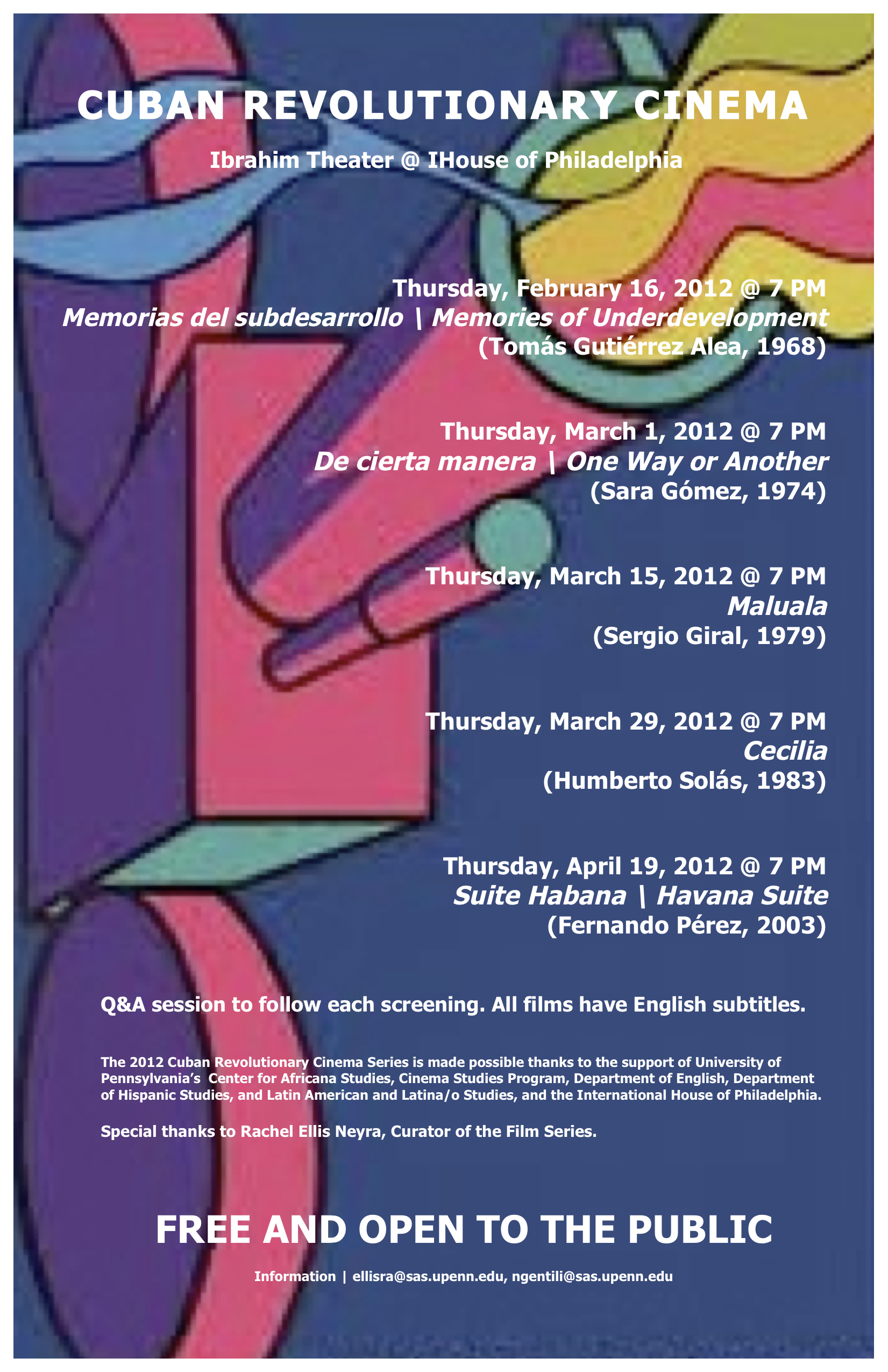Event
Cecilia
(Humberto Solás, 1983)
The film that is storied to have led to the displacement of Alfredo Guevara from his presidency of the ICAIC, at least for a time, Humberto Solás’ Cecilia has been heavily if not scathingly debated in circles of Cuban film and art critics. An adaptation of the 19th century novel, Cecilia Valdés, a text more sacred than the Bible, perhaps, in Cuba, the film radically reconceives the story of a mulata so light that she can “pass,” and of such beauty that her one tool for an individual social shift is her very body, as a black story. The Afro-Cuban Orishas Changó and Oshún frame the entire cinematic narrative, which begins with a boldly and beautifully shot march of slaves and a separate one of creole Catholics celebrating the Epiphany; the music being sung by one group and the other never blends, but pushes against each other and maintains the separation. It is more the exfoliation and transformation of these opening sounds into images throughout the narrative than the exclusive story of Cecilia with which the film is concerned. Patiently and compellingly, the film conveys the paranoia that spread and only thickened after the Haitian Revolution, the relations of criollo parents with aristocratic lusts and criollo young adults with ambiguously liberal political leanings, the violent anxieties of the system of slavery experienced by all at different intensities, and the instantiation of Independence, decolonization, as a long and bloody process.
Cecilia will be introduced by Javier Sampedro, Ph.D. Candidate in Hispanic Studies at the University of Pennsylvania. Mr. Sampedro’s dissertation is about the layered yet evasive relations between Cuban Literature and Cinema and the discourse of Caribbean Poetics. He reads Cuban Cinema of the 60s and 70s as both an engagement and a rupture with Cuban nationalism, as a line of flight that intensifies Cuba’s Caribbean position, even as that line retraces echoes of Cuban exceptionalism.
The 2012 Cuban Revolutionary Cinema Series is made possible thanks to the support of University of Pennsylvania's Center for Africana Studies, Cinema Studies Program, Department of English, Department of Hispanic Studies, and Latin American and Latina/o Studies, and the International House of Philadelphia.
Special thanks: Rachel Ellis Neyra, Curator of the Film Series.


